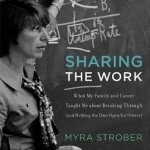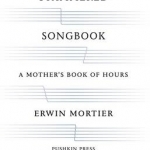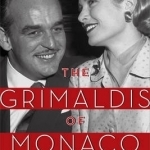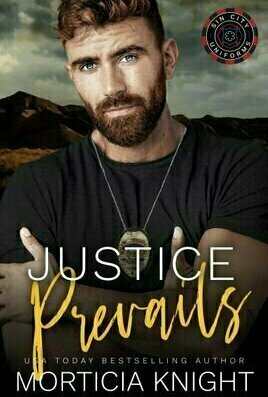Jamie Towell Cook (13 KP) rated the PlayStation 4 version of Sonic Mania Plus in Video Games
Apr 6, 2020
Sonic Mania sees you take control of Sonic and his team mates, Tails and Knuckles as you revisit some very familiar stages from Sonics past to take on Dr. Eggman (or Robotnik if your old school) and his latest creations. In a race to collect the seven chaos emeralds and save the day.
Mania Plus also sees the return of two characters that have been locked away in the vaults for some time now. Mighty The Armadillo & Ray The Flying (Gliding) Squirrel. All characters are equipped with their own unique skill set to help you traverse the levels and discover new areas and secrets.
Mania ditches all the gimmicks that have been the sonic series' shortcomings and returns to simpler times of side scrolling fast paced action that are plucked straight from the early 90's. Familiar levels to any fan of the golden era and even more familiar soundtrack. This also brings back the dread of the underwater level and that inevitable countdown sound that has haunted your childhood dreams and will do once again.
The game isn't just for single players though, the main story is as much fun now with sonic and tails as it was for sonic 2 & 3. Where you will be constantly shouting at the player controlling sonic that they've left you behind and then using Tails as a meat shield to defeat the end of level bosses. There is a race mode for other players to join in on, time attack mode to keep besting your own personal score. An endless supply of blue sphere stages to unlock and even the return of Dr. Robotnik's Mean Bean Machine. There is plenty in this game to keep you entertained for a very long time.
Heres hoping that Mania 2 isn't too far away. Hopefully with even more character selection redeeming all those newer characters that have been unfortunate enough to be featured on some of the more questionable sonic titles. I personally would love to see Team Chaotix, Amy Rose, Cream & Chao, Big, Rouge, Shadow, Blaze and maybe even the babylon rogues. Maybe even a few blasts from the past like Johnny Lightfoot, Porker Lewis and Shortfuse from the sonic the comics.
All in all, a much better addition to the wounded Sonic series.
Debbiereadsbook (1611 KP) rated Justice Prevails (Sin City Uniforms #3) in Books
Aug 1, 2019
This is book 3 in the Sin City series, and you don't NEED to have read boks one and two before this, to follow this one. You should, though, cos I said so! They are rather good!
Beau is in the middle of a serial killer investigation, and bumps into Austin when he is trying to drown his sorrows after he loses his childhood friend. Austin pulls a blinder and kisses Beau and Beau is, for want of a better word, smitten with the geeky young man who he keeps bumping into! Taking a 5 hour trip to interview someone turns out to be a bust for the case, but somewhat of a revelation for Beau and Austin and their relationship, if they can stay alive.
Like I said, book three and I don't *think* Trent and Shawn (book one) are even mentioned here, but Parker and Lonnie (Slade, book two) do play a part here, so I repeat, not totally necessary for you to have read the other books.
Serial killer aside, I found this a much lighter read, and I'm not entirely sure WHY, since both men have their own demons to battle, as well as the killer, but that's my thought on finishing and ya'll know I'm ALL about the sharing of my book thoughts!
Beau is smitten with Austin but he is NOT he usual type. And that's what sort of bothers him the most, this attraction to a geeky guy he never even looked at before, even though he had seen him around the station. Austin has admired Beau from afar, for a while, and getting his hands on Beau, even for a short time, to scratch the itch that burns when they are together, will be enough, for now at least.
The killer story line worked itself into Beau and Austin's life really well, and actually, I had no clue how that was gonna play out! I thought it might be carrried over to the next book, but it's all wrapped up in a big fat Austin shaped bow here. Well played, Ms Knight!
Brett (Parker's ex from book two) is up next. Be nice for him to have his happy ever after, after what happens to him in book two.
Loving this series, please keep them coming!
5 stars
**same worded review will appear elsewhere**
Gareth von Kallenbach (980 KP) rated Teenage Mutant Ninja Turtles: Out of the Shadows (2016) in Movies
Aug 6, 2019
I am happy to say that Teenage Mutant Ninja Turtles: Out of the Shadows is better than its predecessor in almost every way. It’s funnier and delivers the action at an almost frantic fast pace which will no doubt keep the youngsters eyes firmly fixed to the screen. For Dads, Megan Fox is back as April O’Neal and Moms get eye candy of their own with Casey Jones, who is played by Stephen Amell (Arrow). Both deliver the type of performance you would expect for a film like this, fun, upbeat and whimsical. Add in Will Arnett reprising his role as Vern and you have several laughs as this group interacts with the turtles.
On the villain side, we are introduced to the mutated Rhino Rocksteady and Warthog Bebop who are The Shredder’s new henchmen. Both of them are big, dumb, over the top…and they love it! This has been one of the best on screen representations of the duo yet. They add their own fun pace every time they are on film.
As a kids film, those expecting some kind of great explanation or exposition for story development will be disappointed. But those just looking to go along for the ride will feel right at home. The film doesn’t even balk at the opportunity to bring a new character from dimension X, introduce inter-dimension portals and the Technodrome with only a one liner here or there that explains the significance of those items. And then, before we can think of any holes in the explanation, we are taken away to the next set of fast paced and fun action scenes that makes us not care about clarification.

Duckie Deck With Teeth
Education and Games
App
“I watched a 4 year old and 6 year old play it together the first time they saw it and they...

Wachanga, Parenting Guide
Education, Lifestyle and Stickers
App
Wachanga is your personal guide for your kid's up-bringing. The App includes lots of tasks for...

Sharing the Work: What My Family and Career Taught Me About Breaking Through (and Holding the Door Open for Others)
Book
"Myra Strober's Sharing the Work is the memoir of a woman who has learned that 'having it all' is...

Stammered Songbook: A Mother's Book of Hours
Clare Skeats, Erwin Mortier and Paul Vincent
Book
'My mother, a house that is slowly collapsing, a bridge dancing to a tremor.' It started when she...

The Grimaldis of Monaco: Centuries of Scandal, Years of Grace
Book
The Grimaldis of Monaco tells in full the remarkable history of the world's oldest reigning dynasty....

Dreams of a Refugee: From the Middle East to Mount Everest
Book
Dreams of a Refugee is the extraordinary story of Mostafa Salameh, born in Kuwait to Palestinian...

The 15:17 To Paris (2018)
Movie Watch
From Clint Eastwood comes “The 15:17 to Paris,” which tells the real-life story of three men...


